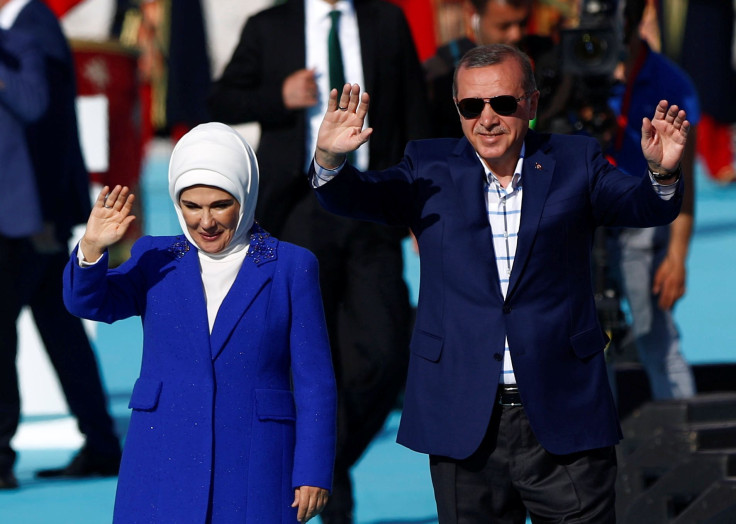Turkey’s Erdoğan Accuses Russia Of Arming PKK Militants

Turkish President Recep Tayyip Erdoğan has accused Russia of providing anti-aircraft weaponry and rockets to militants of the outlawed Kurdistan Workers’ Party (PKK), government officials said Monday, confirming reports in local media.
Speaking to reporters aboard his airplane after a visit to the southeastern province of Diyarbakir over the weekend, Erdoğan accused Moscow of transferring weaponry to the PKK via Iraq and Syria, the pro-government Star newspaper said.
“At this moment, terrorists are using anti-aircraft guns and missiles supplied by Russia. The separatist terrorist organization is equipped with these weapons. They have been transferred to them via Syria and Iraq,” the newspaper quoted Erdoğan as saying.
The “separatist terrorist organization” is a Turkish government term for the PKK, which has waged a three-decade insurgency against the state that has left more than 40,000 people dead, mostly PKK militants in the country’s largely Kurdish southeast.
Two Turkish government officials confirmed Erdoğan’s comments, but Russia said Turkey must show proof of its claims.
While Erdoğan has previously castigated Russia for its support of Kurdish fighters in Syria, the latest comments appear to be the first time he has accused Moscow of supplying arms to the PKK, seen as a terrorist group by Turkey, Europe and the U.S.
Responding to the accusation, Russian Deputy Foreign Minister Mikhail Bogdanov was quoted by Interfax news agency as saying, “When someone says something, let them show evidence.”
Fixing Ties
However, Turkish Deputy Prime Minister Numan Kurtulmuş was relatively upbeat Monday about the outlook for relations with Russia, a rare departure from months of tough rhetoric after Turkey shot down a Russian warplane last year.
“Neither Russia nor Turkey can afford to sacrifice their relationship with each other,” Kurtulmuş, the government’s official representative, said at a news conference. “I wish such tensions had never emerged, but I believe that Turkish-Russian ties can be fixed in a short while. These two countries have no problems that cannot be overcome. I hope that these issues will be solved through dialogue.”
Kurtulmuş did not directly address Erdoğan’s comments about Russian military support for the PKK.
Ankara also considers the Syrian Kurdish YPG fighters to be terrorists and has been enraged by both Russian and American backing of the militia in its battle with the Islamic State group in Syria.
NATO member Turkey is part of the U.S.-led coalition against the militant group also known as either ISIS or ISIL in Syria and is also a vocal opponent of Syrian President Bashar Assad. Moscow backs Assad, but says it also supports the Syrian Kurds in the struggle against ISIS.
Relations between Ankara and Moscow hit their worst point in recent memory after Turkey shot down a Russian plane over Syria last year, prompting a raft of sanctions on Turkey imposed by Russia.
Russian President Vladimir Putin in April promised support for Syrian Kurds, saying they were a serious force in the fight against terrorism.
Moscow has accused Ankara of hindering Kurdish forces in their battle against ISIS and of using the fight against terrorism as a pretext to crack down on Kurdish organizations in Syria and Turkey.
© Copyright Thomson Reuters 2024. All rights reserved.




















